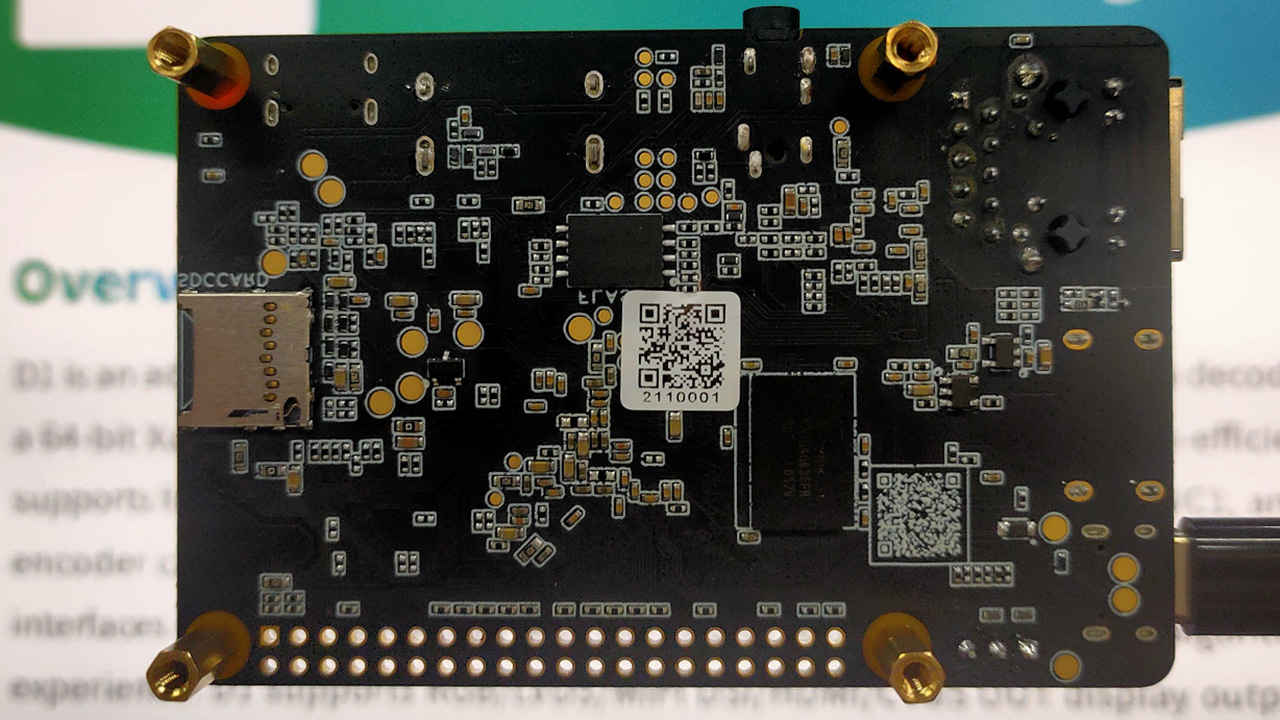RISC-V Raspberry Pi Alternative Edges Closer to Release
D1 puts RISC-V into the hands of makers everywhere
A potential new Raspberry Pi competitor will soon be announced, according to a post on embedded systems blog CNX-Software. Based on the open-source RISC-V instruction set architecture, the Allwinner D1 development board is a credit-card-sized single board computer with a single core XuanTie C906 64-bit RISC-V CPU running at 1GHz along with 1GB of DDR3 RAM.

The board has a lot in common with the single-board computers we already know and love, though seems to be aimed at the less powerful end of the spectrum. The Raspberry Pi 4 has this board beat for pure computational power. There’s the familiar 40-pin GPIO which we assume is compatible with layout used on the Raspberry Pi but that remains to be seen. Also present on the board is a single full size HDMI 1.4 port, Wi-Fi 4 and Bluetooth, two USB Type-C ports and a single USB 2.0 Type-A, a Micro SD slot, Gigabit Ethernet, a 3.5mm audio jack, plus camera and display connectors which look to be the same format as the CSI and DSI connectors found on the Raspberry Pi. Interestingly, there’s 256MB of onboard flash storage, and a four-pin UART header for debugging.
Allwinner is positioning the board as a ‘multi-media decoding platform’, and CNX’s figures show it’s good for H.265 up to 1080p60 or 4Kp30, and H.264 up to 1080p60 or 4Kp24. The display header can run a touchscreen at up to 1080p60, and the HDMI port hits the 1.4 standard.
The Allwinner D1 Linux RISC-V has the same dimensions as a Raspberry Pi 4 at 3.3 x 2.2 inches (85 x 56 mm) but the overall layout is different enough to prevent Raspberry Pi cases from being used. Beyond its video engine, the Allwinner D1 Linux RISC-V development board doesn’t have much in the way of graphics processing. A quoted Coremark score of 3.8/Mhz doesn’t compare well with the Raspberry Pi 4’s 15.1/MHz, but we’d expect this board to be considerably cheaper, and it could be interesting for use in smart displays or networked cameras. Allwinner has its own Debian-based Linux distribution, Tina OS, though its Github page was last updated in 2017, so we’re hopeful for a newer kernel to go with this new board.
Right now that is all we know, but we are hopeful that this board will introduce the RISC-V platform to more makers and lead to more powerful machines coming in the near future.
Get Tom's Hardware's best news and in-depth reviews, straight to your inbox.

Ian Evenden is a UK-based news writer for Tom’s Hardware US. He’ll write about anything, but stories about Raspberry Pi and DIY robots seem to find their way to him.